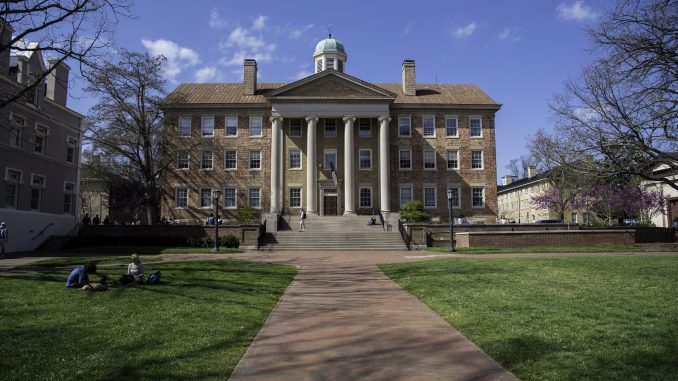
On April 6, North Carolina state Sens. Michael Lee, Amy Galey and Phil Berger introduced Senate Bill 680, a higher education bill that would prevent the University of North Carolina (UNC) System from being accredited by the same agency for consecutive cycles.
That may seem like a mind-numbing bit of insider baseball, but with the introduction of Senate Bill 680, North Carolina legislators may be able to do what once seemed impossible ― break up the outdated regional accreditation monopoly. In doing so, the bill upends the long-standing system of regional monopolies which locks schools into the authority of a geographically assigned, quasi-governmental regulatory agency. With the element of choice comes pressure on the accreditors to stay in their lane of academic quality assurance (and get better at it!) and exercise greater fairness or lose market share.
For most schools, being in an accreditor’s good favor is a matter of financial survival since six regional higher education accreditors currently control access to over $100 billion in student loan funding. Prior to a federal rule that went into effect in 2020, schools could not leave an accreditor that they found capricious, unfair or inappropriately controlling.
But accreditors are imperfect judges of quality and ought to be taken to task. For example, nearly 50 nonprofit colleges and universities that have four-year graduation rates of 20% or less still receive accreditation from SACSCOC. It is not rare to find accredited schools that saddle their graduates with crippling debt, graduate less than one in 10 students on time, or spend more on marketing than financial aid.
It is ludicrous to claim that this oversight authority is working as intended when student loan debt has nearly doubled to $1.76 trillion in just the past decade.
In fact, accreditors have a history of obstructing attempts to improve educational quality or, as is the case with SACSCOC, do not understand the proper role of the governing boards. Earlier this year, the UNC Chapel Hill Board of Trustees passed a resolution requesting that the university accelerate its development of a School of Civic Life and Leadership. In response to media attention, and without reading the board’s resolution, SACSCOC President Belle Wheelan threatened UNC Chapel Hill’s accreditation and arrogantly stated that the proper role for a member of a governing board should be, “Eyes in, hands off.”
While Dr. Wheelan’s statement displays a dangerous misunderstanding of the proper role of a higher education institution’s governing board, this is not the first time SACSCOC has improperly used its authority.
In the early 2000s, SACSCOC placed one university on probation because it had a standard teaching load of 15 hours per week rather than SACSCOC’s mandated 12 hours. SACSOC’s micromanagement forced the consolidation of class sections, and previously small class sizes grew to 60 or more students. In 2014, an independent investigator hired by UNC to investigate academic misconduct revealed that “more than 3,100 students received irregular instruction in African and Afro-American studies paper classes, where students would not have to attend class or complete any assignments, except one — a paper due at the end of the semester that Crowder, a non-faculty member, would grade extremely leniently.”
In that case, apparently, SACSOC was not only hands off but blind as well.
A recent article published by the Coalition for Carolina Foundation attempts to undermine the legislature’s role in its oversight authority of UNC. “It is always risky to change accreditors, but when politicians are trying to drive an accreditor change … it becomes dangerous,” the article states. However, this claim is simply not true. Legislators are elected to oversee public universities, and since Sen. Berger learned of SACSCOC’s intention to send a warning letter to UNC Chapel Hill, he is adhering to the oath he took upon entering office.
If passed, Senate Bill 680 would not cure all that ails accreditation; that calls for a comprehensive overhaul at the federal level. But given Congress’s gridlock, it may be time to look to the states. North Carolina has a chance to strike a blow against the regional monopoly power that accreditors hold. With their fiefdoms threatened, perhaps individual accreditors will respond by innovating — or be consigned to the dustbin of history, as a better system of quality assurance emerges.
Nick Down is a senior program officer with The American Council of Trustees & Alumni.
